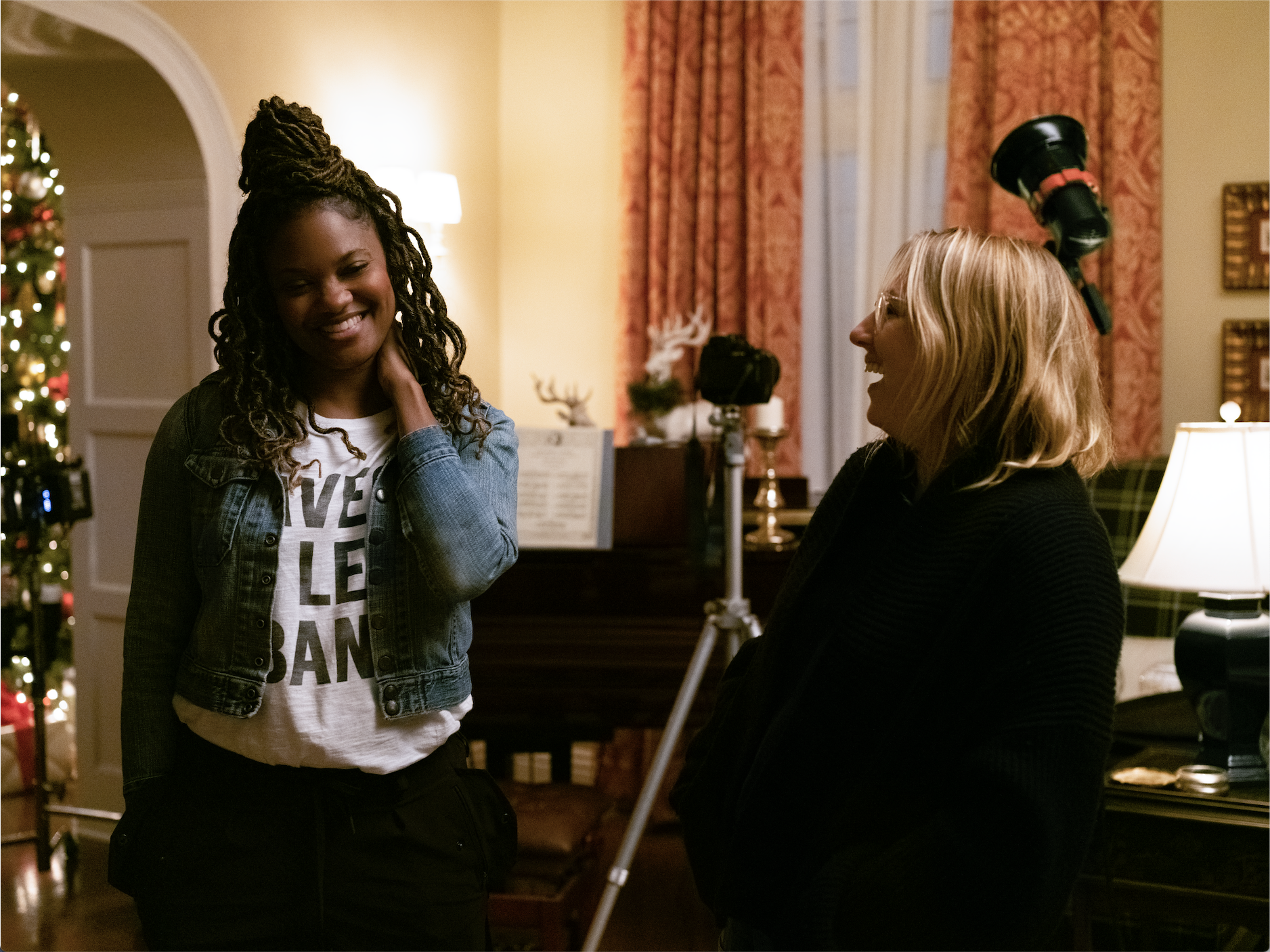Nzingha Stewart Talks Race, Gender And Directing "Little Fires Everywhere"
BOSSIP Exclusives: Director Nzingha Stewart Reveals Her Surprising First Day On The Set Of “Little Fires Everywhere”

Source: Courtesy Hulu / hulu
BOSSIP: Working with so many young actors on this project, is there anything you have to do differently or be more aware of?
Nzingha Stewart: I think the big thing with directing younger talent… A) they definitely take it as seriously as the adults, so I never had to worry about ‘Are they coming to set prepared? Do they care? Are they committed? I didn’t have to worry about any of that – because they were. I think I just had to keep aware for myself, they are kids, so when you give notes — sometimes, when you give notes to adults there is some pushback and you have to remind them not to take it personally. A lot of times I’ll put it on myself, and say, ‘Oh I made a mistake, I think this scene is actually about XYZ, can we try it that way?’ I did not have that issue with Kerry and Reese. They really just approached it as work and there was no taking it personally, they were really just trying to be on the same page about why the note is being given. With younger talent I have to always think, ‘With kids, you give a note and they might think they did something wrong and that’s why you’re giving the note. You have to remind them that they are doing a fantastic job and we might just want to have another option in the edit.’ Or I have an idea and let’s try it, let’s play with this scene,’ and make it something fun to try something new, rather than them thinking you didn’t get what you wanted.
BOSSIP: We noticed a lot of the write ups about you put a lot of focus on your being a female director. With glaring omission of female directors from Oscar nominations this year, during such a female driven time, is it ever a frustration that so much emphasis is put on gender? Do you think the time will ever come when that’s not the case? What do you think it will take for that to change?
Nzingha Stewart: I think it’s frustrating that the story has to exist. I’m glad that the story exists because at least people are saying ‘Hmmm, that’s not right.’ So I’m happy that people are talking about it and continuing to say, ‘That’s not right. There should be more female directors.’ I’m sad that the conversation has to happen at all because there aren’t. And obviously, when you’re a black woman you’re fighting this on two fronts. Maybe they have their quota of female directors but none are black.
It’s interesting because the character Brian [Stevonte Hart], he goes through — and he’s young — I told him I so relate to this character, because I got through this every day. He tells Lexie, ‘When you go off to Yale, they think you got there on merit. When they see me, they think I’m there because I’m black.’ So when I do get a job, do I have to undo a lot of preconceptions because do people think I’m there because they had to give a woman a job or they had to give a black person a job? And it’s tough.
I once made up a phrase called “manfirmation” because they’ll ask me a question and then they’ll ask a man to confirm if it’s right and I always say, ‘Stop manfirming me. This is right. I know what I’m doing. Go do what I said. Don’t ask anybody else. I know why I asked you to do that.’ I’m happy the story is being written about and being talked about. Women and black people and people of color should have the same chance of anybody else, but I also want people to know when we have that chance, we do understand we’re working on high profile projects, we’re working with big budgets, we’re working with big names. We know what we’re doing. We have a right to be there also because we’re good.
Hit the flip for more of our conversation with Nzingha Stewart.








Comments
Bossip Comment Policy
Please read our Comment Policy before commenting.